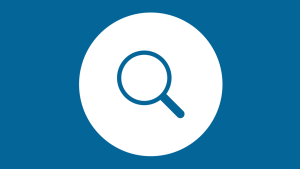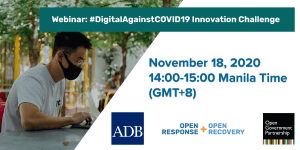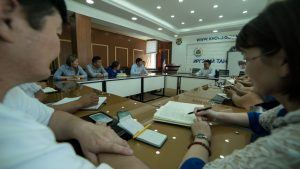
Social Audits in Service Delivery: An Annotated Bibliography
Explore research and empirical evidence from the last fifteen years on how social audits work and their main benefits.
For aid to be effective it depends on:
Donors and recipient governments (and institutions) being mutually accountable for commitments and results;
Recipient governments and institutions being accountable to their own citizens;
Donor governments being accountable to their own citizens;
Accountability between donors on commitments and coordination (Mulley, 2011).
Transparency underpins all of these forms of accountability. It is therefore important that donors provide information about the aid they give, and that they make this information publicly available in a comparable format and a way that people can easily understand. More and better information about aid will help to maximise the effectiveness of aid in reducing poverty because it helps partner countries and donor institutions plan and manage aid resources more effectively, parliaments and CSOs to hold governments to account for their use of aid resources and domestic taxpayers to see where their money is going, maintaining public support for development cooperation a time of financial stringency.
Without transparent aid information, countries that receive aid lack vital information to make decisions about domestic budgeting and spending, while donors are unable to judge where aid is most needed and how effective it is. Improving transparency and accountability in aid can also help to support the development of comprehensive and transparent national budgets which are crucial for citizens to hold their government to account in managing public money.
In 2005, under the Paris Declaration, donors committed to “provide timely, transparent and comprehensive information on aid flows so as to enable partner authorities to present comprehensive budget reports to their legislators and citizens”. At the Fourth High Level Forum on Aid Effectiveness in Busan in 2011, donors made their commitments more specific, agreeing to implement a common, open standard for publishing aid information, based on the OECD’s Creditor Reporting System (CRS) and the International Aid Transparency Initiative (IATI). Each organisation that endorsed Busan Partnership was expected to produce implementation schedules by December 2012 and aim to fully implement the common standard by December 2015.
Exactly 20 years ago, in the early months of 1998, I was a student living in Indonesia, witnessing in person…
2018, Perspective, Web Page
2018, Perspective, Web Page

Explore research and empirical evidence from the last fifteen years on how social audits work and their main benefits.

Can authoritarian models of governance truly deliver on development in a peaceful and sustainable manner? In this context, the question emerges: Should the EU stop funding autocrats? Experts on both sides explore this question through a Democracy Debate.
Democracy Debates (Debates sobre democracia) es un nuevo foro multisectorial diseñado para debatir las políticas y los procesos políticos que impactan la democracia. Con el liderazgo de la Open Governance Network for Europe (Red de Gobernanza Abierta de Europa) y…

Learn how OGP members are improving access to and the quality of legal aid.

This event has already occurred. The Asian Development Bank and the Open Government Partnership hosted a discussion on using digital technologies to strengthen monitoring and effectiveness of COVID-19 stimulus packages and safety net measures. Learn more about the Government Accountability…

Read how Mongolia plans to improve transparency and public oversight of the public procurement process through an online portal. This commitment is featured in the "What's in the 2019 Action Plans" publication.
Lea cómo Mongolia planea mejorar la transparencia y la supervisión pública del proceso de contratación pública a través de un portal en línea. Este compromiso aparece en la publicación " Qué hay en los planes de acción de 2019".
Découvrez comment la Mongolie prévoit d'améliorer la transparence et la surveillance publique du processus ouvert d'octroi de contrats. Cet engagement est présenté dans la publication « Contenu des plans d'action 2019 ».
Click here for more information about the Open Government Partnership's terms of use.
Terms & Conditions Close